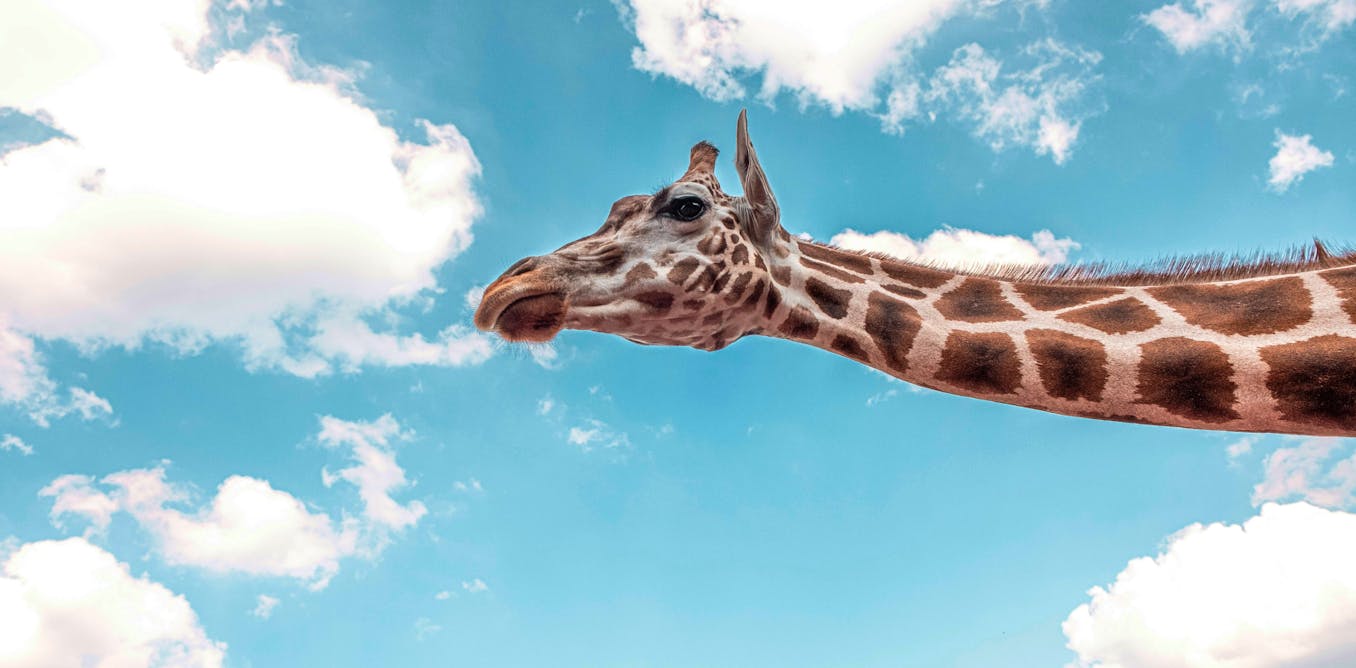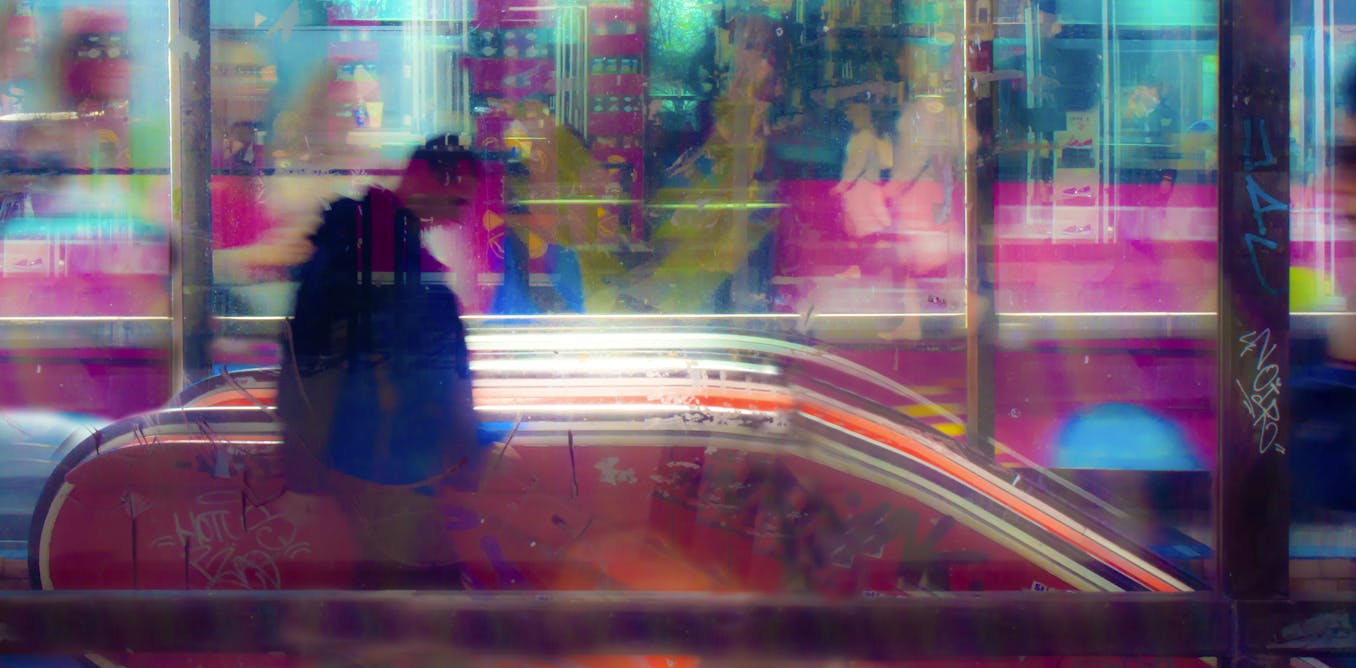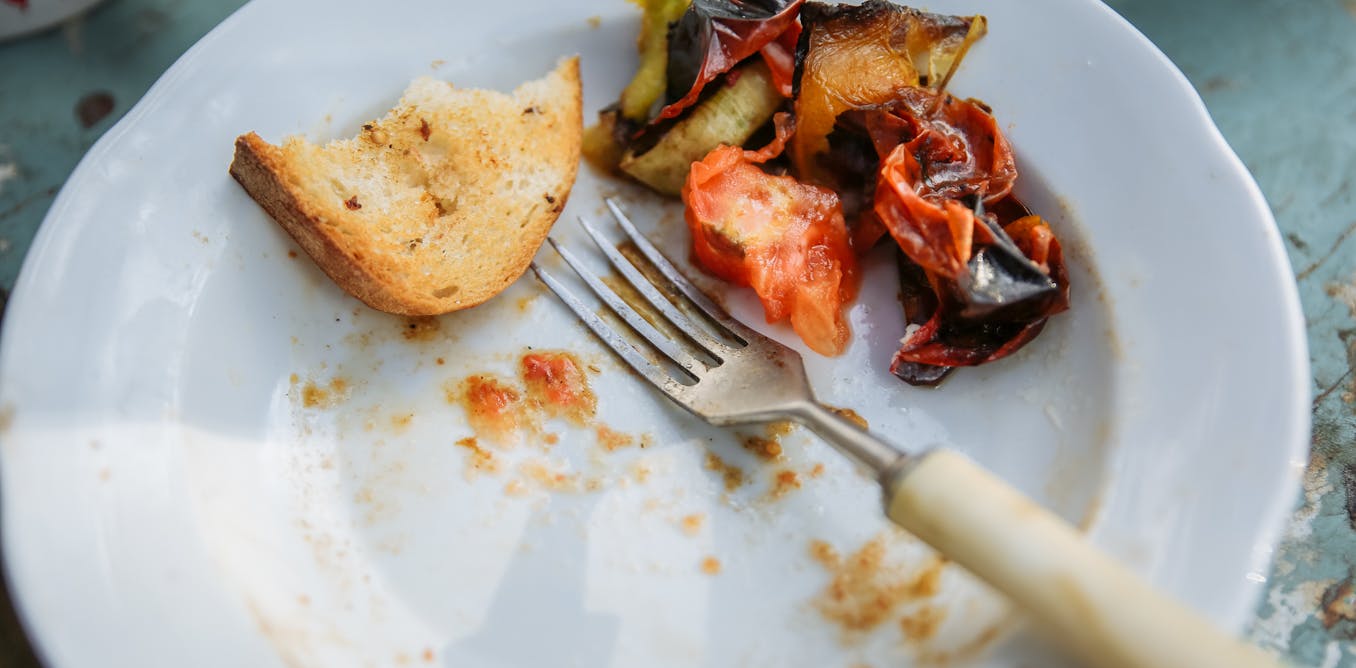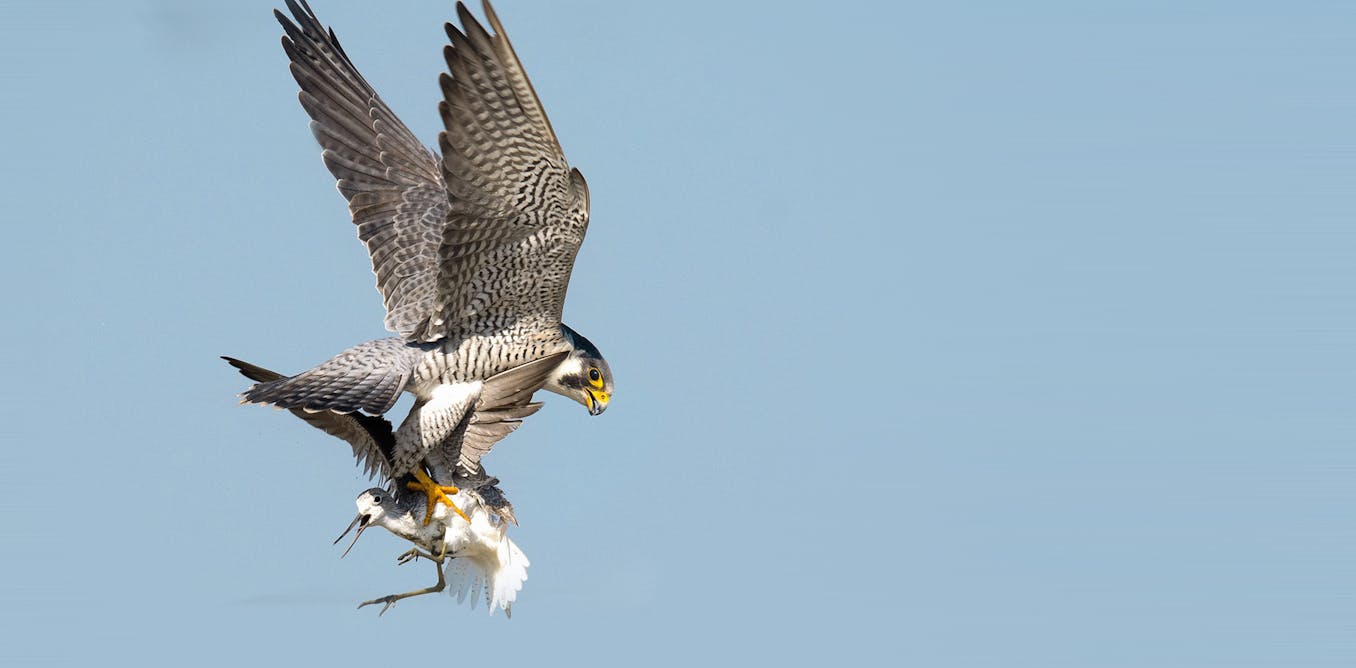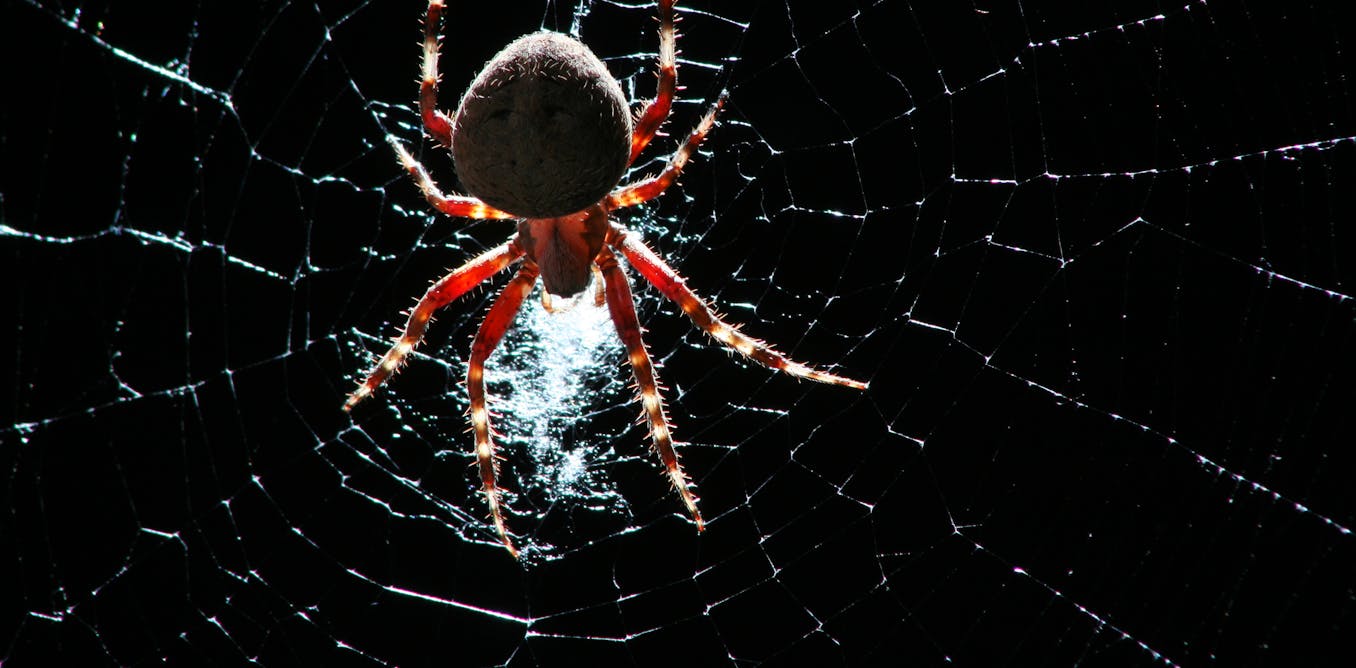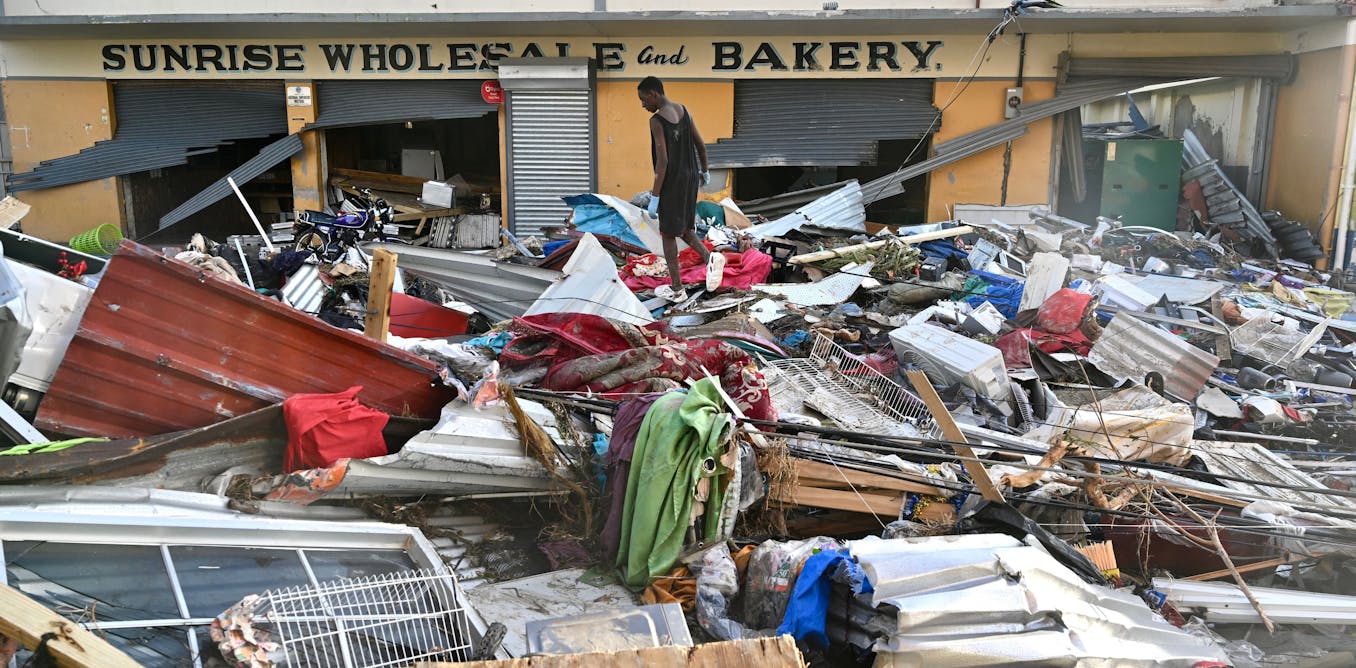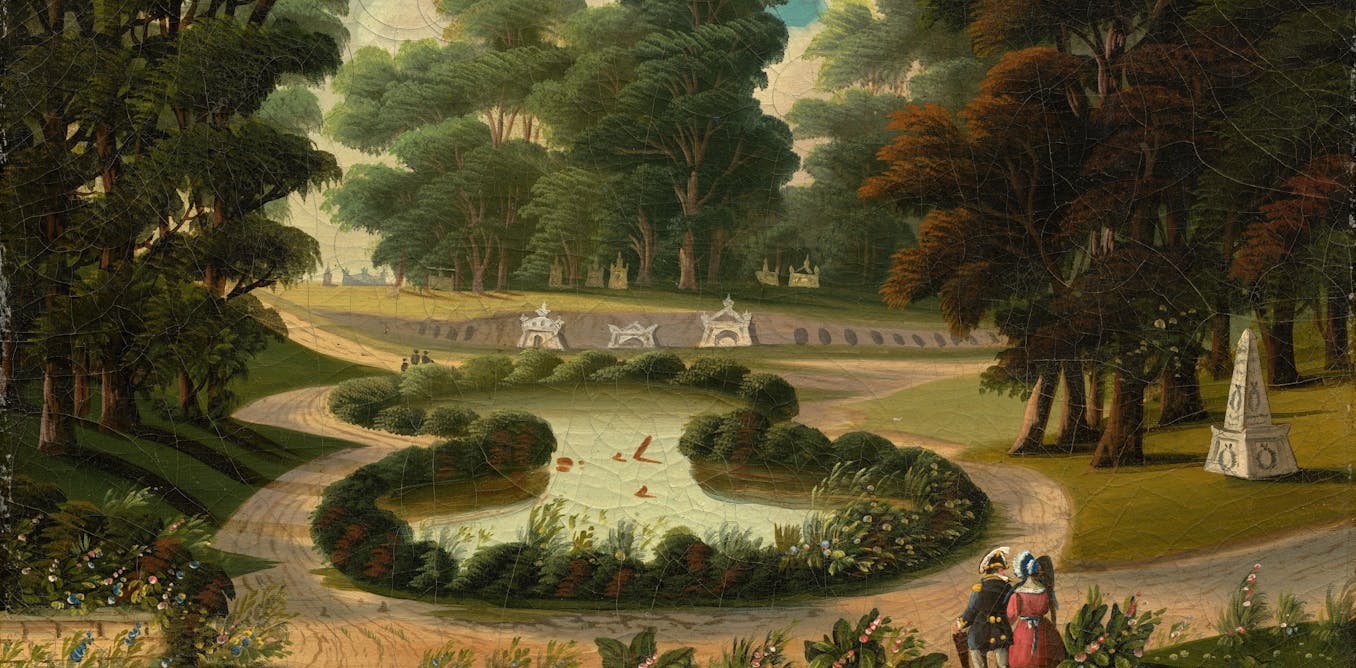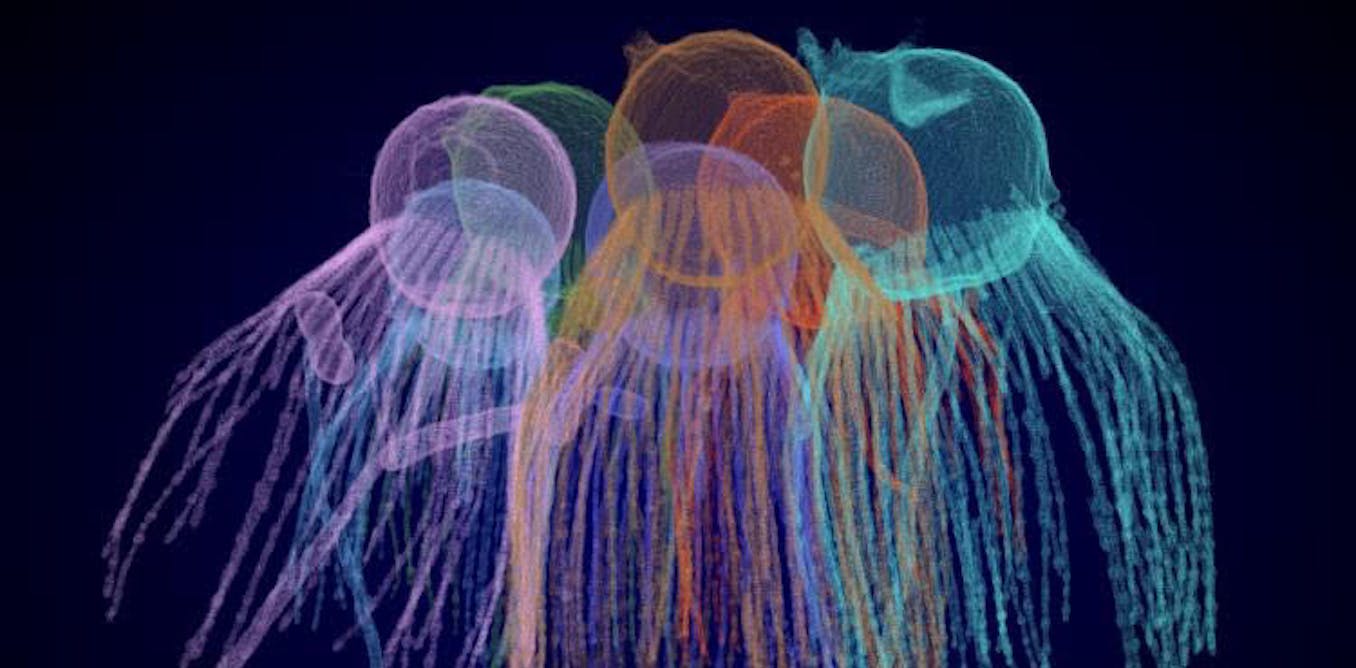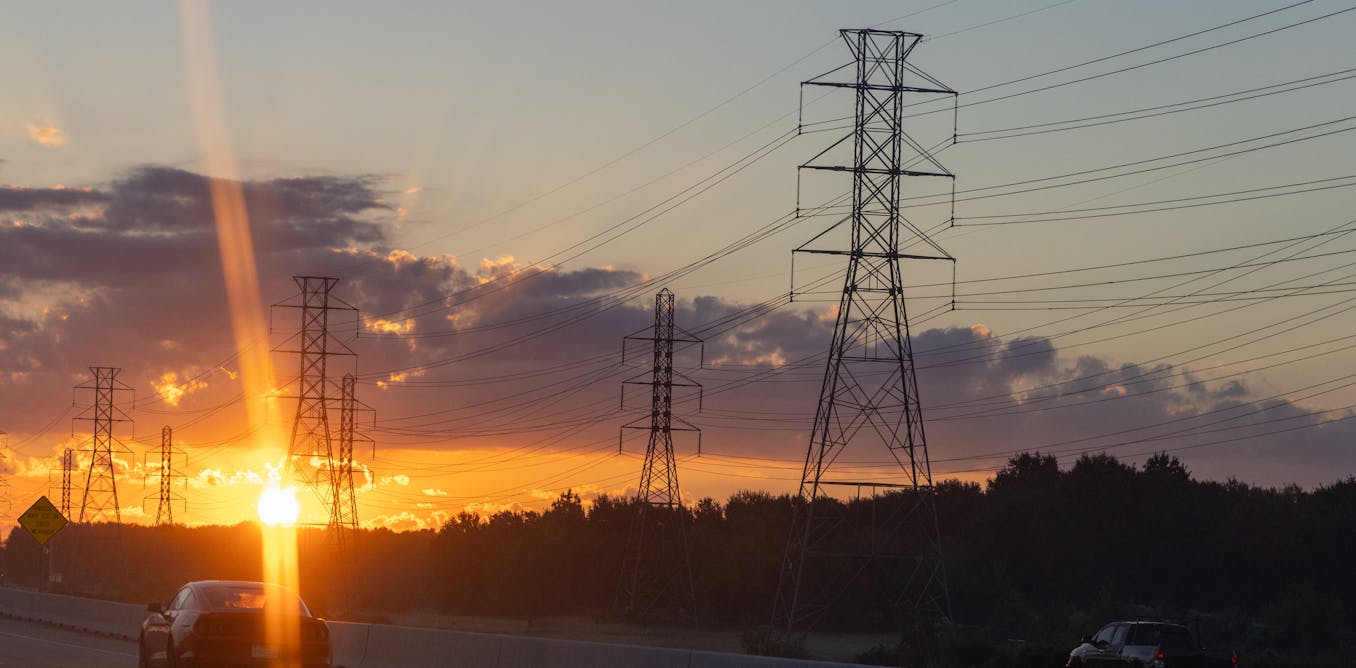Transylvania – The heart of Romania | DW Documentary
Transylvania has a lot to offer: beautiful cities, endless forests, fascinating traditions. All of these are cultivated with great dedication by the people of the region.
Dumitru Pop, for example, works at the “funniest cemetery in the world”. His mission: to change people’s view of death. He carves and paints wooden crosses for the deceased. He decides which anecdotes best commemorate the dead. Too much alcohol? A tyrannical mother-in-law? Dumitru doesn’t sugarcoat anything — and adds a dash of humor to the saddest of circumstances.
Transylvania is nestled in the Carpathian Mountains and boasts seemingly endless forests and pristine nature. In towns like Sighisoara and Biertan, imposing churches remind us that Transylvania was shaped by German culture. Among the people the filmmakers meet are two Transylvanian Saxons who are renovating their house using ancient tools — and the knowledge passed down by their ancestors.
The largest ethnic minority in the country, the Roma, meet at the horse market in Gilau. The horse trade has been one of the most respected Roma professions for centuries. The market is impressive and puts on a great show. But it’s also a kind of family reunion. For the horse trader Costell and the market organizer Pufi Moldovan, it’s an exciting day.
#documentary #dwdocumentary #transylvania
______
DW Documentary (English): https://www.youtube.com/dwdocumentary
DW Documental (Spanish): https://www.youtube.com/dwdocumental
DW Documentary وثائقية دي دبليو (Arabic): https://www.youtube.com/dwdocarabia
DW Doku (German): https://www.youtube.com/dwdoku
DW Documentary हिन्दी (Hindi): https://www.youtube.com/dwdochindi
Watch the video by DW Documentary
There are some places just about everyone has heard of but few truly know. One such place is Transylvania. A male-dominated culture that nevertheless has its softer sides. For us, a horse is like a child. Horses are like members of the family for us Roma.
Transylvania is a region with a long history and vibrant traditions. Itís a place where people enjoy life and are even at peace with the idea of it one day coming to an end. Our cemetery is the only one in the world where people laugh, rather than cry.
Away from the cities, some places appear almost frozen in time right in the heart of Europe. Low-hanging clouds of mist. Sinister legends. Vampire stories. Transylvania is perhaps best known for the saga of Count Dracula. Bran Castle is marketed as the countís home. But the region has much more to offer than spooky myths.
Its magnificent buildings are the backdrop to a dramatic history. Hungarians, Germans, and Romanians have shaped Transylvania. In the far north, on the border with Ukraine, is Maramure?. The region, historically a part of Transylvania, is known for its skillful craftspeople and the elaborate wooden churches recognized by UNESCO as World Heritage Sites.
In the small Orthodox Christian community of Sap‚n?a, residents believe that death loves wood. They say that the whole of human life from the crib to the coffin is bound up with wood. And people here have an unusual view of death. This is especially evident in the cemetery of this village of 3,000 residents.
When a person dies, they get their very own personal memorial: a lovingly-carved, brightly-painted wooden cross. A picture and a poem, each one unique, tell the story of the deceased. Honestly and bluntly, for better or for worse. For 45 years, Dumitru Pop has been carving crosses here,
A place the locals call the ìmerry cemetery. This makes him something of a village chronicler. The plan is for son-in-law Ioan to one day follow in his footsteps. To do the job, one needs to know a lot about the people of Sap‚n?a. The whole village knows the story of this deceased woman.
Because everyone knew how badly she treated her family. Especially her son-in-law she really bossed him around. He had to dance to her tune and people mocked him for it. After her death, the family asked me to make a cross that was a true memorial to her life. And this is it:
Beneath this cross lies my mother-in-law. If sheíd lived just one day more, Iíd be down there. You who admire this cross, donít try to wake her, otherwise sheíll come back home to annoy and tease me. The reactions were positive, no one said Iíd written anything wrong. That was how she was.
Itís Dumitru alone who decides which life event commemorates the deceased and above all, what information is included in the short poem. This is for a young man who died in a car accident. And I wrote the following: Oh I rest here at a young age, my name is Grincu Gheorghe.
I proudly bought myself an expensive car, But the Mercedes didnít last long, I died in my car before it had even left the lot, My life came to an end so early. If only Iíd at least had a bride, But now Iím lying in my grave a virgin. Final words of remembrance
Sincere, but with a wink and a nudge! But Dumitru has no intention of mocking the deceased. He carves, paints, and writes with one overarching aspiration. The idea is to change peopleís perspective on death. The merry cemetery is the only one in the world where people laugh about death, rather than cry.
Taking the sorrow out of death. A mission that became his lifeís work. Over the years, the 67-year-old has made a name for himself across Romania. Geographically, Transylvania forms the center and the northwest of Romania. The region is surrounded by the elongated mountain ranges of the Carpathians.
Cluj-Napoca is seen as the unofficial capital of Transylvania. With some 325,000 residents, Cluj is Romaniaís second largest city and the cultural, economic, and scientific center of Transylvania. Formerly known as Klausenburg, it was founded by German settlers in the 13th century. The grand buildings in the Old Town testify to its great regional significance.
Today itís mostly young people out and about on the streets. Cluj is a university city, representing a young and modern Transylvania. An exception in a region thatís, for the most part, rural and traditional. In the small towns and villages, thereís an incredible sense of peace and quiet. Here, people still have time
Or at least, they take it. On the roads, there are almost as many carriages as there are cars. Horses are closely linked to the regionís history. To this day in Transylvania, theyíre not just an important mode of transport, theyíre also a status symbol. Constantin Vamos is the proud owner of 31 horses.
His farm isnít far from Cluj. Come to Papa, Hadice, come to Papa. Whoís the best behaved? Constantin, or ìCostellî as everyone calls him, has a close, almost familial-like bond with his horses. Horses are the most beautiful animals on this planet. Iíve loved horses since I was a kid.
When I was eight, I bought myself a donkey. I couldnít afford anything more. Nowadays, not only does Costell have enough money to pursue his passion, heís also turned it into a source of income. Heís been breeding and selling horses for 30 years.
Hey, look here, sweet little guy, come to Papa, give me your leg. Good boy, good boy. Heís still young. If you donít train him now, heíll kick you in the face later. He has to learn now, just like a child. But as much as he grows fond of the animals,
At some point itís time to let them go. One of the regionís most important markets is taking place tomorrow. Stela the mare is due to change hands. The negotiations are already in full swing. Iíve asked for 4,500 euros. I donít know if Iíll get that. I have to convince the buyer in person.
Iíll try and negotiate the highest possible price. The potential buyer wants to see some new photos before meeting the horse tomorrow in the flesh. Costell breeds ìRomanesc Semigreu,î a traditional Romanian breed. Originally used as working animals, today theyíre primarily a status symbol. At the upcoming horse market in Gilau, theyíre highly prized.
Transylvania means ìbeyond the forest.î Like a thick, old carpet, forests cover large areas of the region right up to the peaks of the Carpathian mountains. The few people who settle here live with and from nature. It sounds romantic, but itís not so easy. Itís six in the morning,
The start of the working day for shepherd Toader Tapas. Even though todayís work is a little out of the ordinary. Itís going to be a tough day, but thatís just the way it is. Iíll feel the work in my bones this evening. But thatís OK. Toader canít live from his sheep alone.
Every two months, he sets off to his fire site to make charcoal. We need the charcoal to survive, otherwise there isnít enough money. We need both: the sheep and the charcoal. Then we manage to get by. Toaderís family farm is located high up in the mountains.
Besides sheep, he owns goats, pigs, and a few hectares of forest meaning he has wood at his disposal. With the source material at hand, Toader can get started. He gradually piles up several tons of bone-dry wood. The center, whatís known as the ìquandel shaft,î is crucial.
Itís where Toader will light the fire later. To do this, he needs bone-dry wood, a refined technique, and this secret ingredient The rubber boot burns ultra fast. One by one, Toader and his helper stack the logs in a circle around the core. It looks simple, but it demands great concentration.
The spacing is crucial. Too close, and not enough oxygen will reach the core. Too far apart, and it will burn unevenly. Iíll only see if I did a good job at the end. Until then, all I can do is hope. Toader grew up in the mountains, just him and his parents.
While other children practiced writing and math, Toader learned to bring 400 sheep safely to pasture, to make cheese out of milk, and charcoal out of wood. I couldnít work in an office. I need the freedom and the fresh air, out here in nature. And not everyone can live in the city anyway.
The stack is almost finished, a pile of wood weighing tons with ventilation shafts. Toader covers it, first with straw, and then with cold ash and soil. This protects the wood from wind and moisture. Finally, he lights the fire through a narrow gap in the stack. I need to hurry and add more wood,
So that the fire catches on the other side. Otherwise, itíll just burn at the front. The flames go out quickly. But the embers continue to glow beneath the dome, where thereís just enough oxygen. The skill lies in controlling the invisible smoldering fire to prevent the stack from going up in flames.
Toader wonít know how good the charcoal will be until he reopens the stack after five days. Transylvania has been the backdrop of an eventful history. Romaniaís best-known region is a melting pot of different European peoples. The culture of the regionís ethnic Germans is entrenched here to this day.
There are more than 150 preserved fortified churches here an impressive legacy of the Transylvanian Saxons. They were built around the 15th century to defend against Ottoman invasion. In towns like Biertan or Sighisoara, residents could take refuge in these structures. Houses of worship were turned into proper strongholds with thick walls,
Observations towers, and entire neighborhoods. Most of the ethnic Germans began leaving Romania after 1970. Today around 16,000 Transylvanian Saxons still live in the region. In the village of Cincu, two of them are going back to their roots. Marlene and Alex Herberth want to preserve the culture and language of their ancestors.
In particular, the artisan traditions of the Transylvanian Saxons. Together, theyíre renovating the house that once belonged to Marleneís grandparents with old materials and tools when possible. Theyíre currently working on a wooden pavilion. The challenge is: when you work with old materials, itís quite normal that nothing fits and everythingís crooked,
Because everything was crafted by hand. While carpenter Alex takes care of practical aspects, Marlene goes on a daily treasure hunt for old items. Her latest find: antique doors and matching windows. Sheís also discovered evidence of their historic value. We found the exact technical drawing in the carpenterís book from 1874.
Things like this are proof that here in this region of Transylvania in Romania, thereís an old artisan tradition thatís worth reviving. In their renovation project, the Herberths utilize their ancestorsí materials and know-how as a way of building sustainably while saving money. These finds very nearly became firewood.
Yes, itís a great piece of work in terms of craftsmanship and design. Itís a real treasure thatís survived for more than 100 years. But thereís still quite a bit of work to do before Alex can fit the doors into the wooden frames. Itís going in… two millimeters yeah, thatís staying put. The problem:
The strutís too long and the joint has the wrong dimensions. But Alex is not giving up. Theyíre not defeats, theyíre challenges. In his workshop, Alex finds a suitable tool for every challenge. The 38-year-old collects traditional tools from the region and repairs them. The old tools are better the quality of steel is better.
Theyíre much more robust than the standard tools you can buy everywhere these days. And if theyíre old and from the village, itís safe to say they were made by a village blacksmith with a particular craftsman in mind. So heíd never give him anything shoddy,
Because the two of them would see each other almost every day. The unconventional project has long been the subject of village gossip. For sure, people shake their heads when they talk about us. Weíre the ones who collect all the old junk that would normally be thrown away to make a few quick lei,
For scrap iron or firewood. No oneís collecting this kind of stuff. Of course, weíre the freaks around here, but thatís just fine. Alex was born in Bra?ov, Marlene in Bucharest. They were raised bilingually. But living in Germany was never an option for them. Their roots to their Romanian homeland run deep,
And Marlene feels them here especially. When my grandmother died, I came to the empty house a short time later for a vacation, at a very difficult time in my life. A time when I was wondering who I was and what I was actually doing I wasnít so conscious of it at the time,
But it turned out to be a wonderful dream. And so, Marlene stayed. But realizing her dream became more complicated than expected. The couple kept coming up against new, unforeseen problems. Thatís not working at all, is it? The nails from Alexís supply donít fit.
They wonít be able to continue working on the wooden frames for the pavilion. While Marlene and Alex try to find a solution… further to the north, people are also working to preserve another artisanal Transylvanian tradition. In the little village of Sap‚n?a, Dumitru Pop makes his wooden crosses for the deceased.
Heís been doing it for 45 years. He feels those years in his bones. Itís important to him that the tradition is passed on. His son-in-law is to take over the reins, a huge honor for the young man. Itís a big responsibility for me. Iím not setting out to be better than my predecessor,
But Iíd like to at least reach his level. Iíd like to achieve that. Like many young Romanians, Ioan worked on construction sites or farms across Europe as a migrant laborer. His home village couldnít secure him a future neither personally nor financially. Until he met Dumitruís daughter and started helping out in the workshop.
To work with the crosses gave me a purpose in life again, so thatís why I decided to stay in Sap‚n?a. I felt at home here again. It was very difficult for me before. Heís been Dumitruís apprentice for two years and will ideally take over the job soon. But thereís one problem:
His skills arenít quite up to the masterís exacting standards. Iíd like you to finish chiseling the upper wreath today, where the lettering will go later. I hope it works out. Iím nearly done here. And once youíve done that, you can help me with the painting. Iíll do my best.
This cross is to be a final memorial to a departed family friend. The Gilau horse market is a combination of trade show and family reunion. Itís already packed, just like every year. And traders are still trying to secure an area on the field, which is much too small.
Costell, the horse breeder from Cluj, is late again. But heís determined to find a spot. I donít know of any event like it, this festival is unique. Itís about honor and money. A lot of money. Costellís hoping to sell one of his best mares today.
The potential buyer is also the organizer of the market. Pufi Moldovan makes sure everything comes together. I canít put into words how important this market is to me. Itís in my blood. My father, my grandfather, my entire family always had horses and thatís how they earned a living.
A horse is like a child. Horses are like members of the family for us Roma. Pufi belongs to the Romani ethnic group, like almost all those taking part in the market. The first Romani people arrived in Transylvania in the mid-14th century from India and Anatolia.
Horse trading is one of this ethnic minorityís oldest and most respected professions. With a lot of fanfare, the men try to get potential buyers to notice their horses. Negotiations are conducted in a rather crude manner. Enough, you crook! Letís shake! 3,000! Youíre joking, you scoundrel! 4,000! Eventually, a double handshake seals the deal,
And the tone becomes friendlier. Horse trading is a male domain in a culture thatís generally dominated by men. Aside from money, this business is also about socializing. The market is the get-together of the year for the Romani. They eat, drink, and party into the night. In Sap‚n?a, itís a different atmosphere.
The village in northern Transylvania is in mourning. A member of the close-knit community died just a week ago. The widow Nuta has commissioned a cross for her husband Stan George. Everyoneís still in shock, he was only 57 years old. An infection resulted in organ failure. No one saw it coming.
If heíd only complained about the pain earlier if weíd been at the hospital sooner but it was already too late: His entire body was infected. Itís so sad. In Sap‚n?a, people have an unusual attitude to death. They mourn but try not to dwell in the sorrow. Letís remember the good things.
There are so many photos. Our granddaughterís just one year old here. The widow Nuta has asked Dumitru Pop to make a cross, as all the villagers do when a loved one dies. Locals believe the cross is the entrance to paradise. The cross will be a sign of respect for my beloved husband.
Iím not worried because I trust Dumitru with all my heart. He knows the story of every person he makes a cross for. Heís from here, he was a friend of my husbandís. He knows everything. Dumitru Pop knows Stan George and his wife well. He was at their wedding and their childrenís baptisms.
While Dumitruís son-in-law works on the carving, Dumitru will write a poem about his departed friend. Itís always sad when a family member passes. Weíll all miss him. On this occasion too, Dumitru will remain true to his principles. Whatever I write on the cross is always a surprise for the family.
They only see the cross at this stage, and then again once itís completely finished. I never show the poem before, otherwise they might say, Donít write that on it. Nuta fully entrusts Dumitru with composing her husbandís final tribute. The merry cemetery of Sap‚n?a. Itís one-of-a-kind like an open book,
Where visitors can read about the late residents of the village. The Orthodox Christian community faces death with openness and humor and thereís a lesson in there for the living. Dumitru Pop knows how tough life can be, but he always tries to see the bright side.
Apart from when thereís nothing cheerful or humorous to say, as in the case of this little girl. Burn in hell, taxi that came from Sibiu. As big as the country is, you had to stop in front of our house and run me over and make my parents so sad.
This tragic accident happened in front of the parents. Events like this are so painful how else can I describe it? Each time I read it, the sense of grief returns. How awful. But no matter how terrible the fate Dumitru must always find words for the unfathomable.
Including now, for the death of his friend Stan George. The embers in the charcoal pile of Toader Tapas have been burning for five days. He layered tons of wood to build this stack, also known as a clamp. Toaderís milking his animals quickly today, because his instinct is telling him:
Itís time to open the clamp. You can never be certain youíll get a good result. Sometimes the core doesnít burn properly and the wood stays as it is. But Iíve got a good feeling that the clamp has sunk. The money from the sale of the charcoal is an important source
Of income for Toader and his family. The animals alone arenít enough to make ends meet. Toader canít really tell what the pile looks like inside. He needs to open it. Iím starting here. It needs more time. Itís not charred yet, itís still wood. I need to close the hole again, carefully,
So no dirt gets in. Otherwise, Iíll smother the flame again. Toader gingerly closes the gap. Here on the left, the wood isnít yet sufficiently charred. But the embers arenít evenly distributed. On the right side, it could be ready. Toaderís hoping for partial success, at least.
Now I need to see if itís worked here or not but it looks good. The charcoalís slowly starting to show here. From there, itís all charred. Thatís very good, the charcoal is sturdy. No matter how I strike it, it doesnít break. Good quality.
Toaderís family is one of about 20 living in the mountains. Isolated from the rest of civilization, they rely on each other to survive. Toader supplies them with his charcoal for 40 lei per sack around eight euros. And thereís always fuel in the house for cooking. Supper today is mutton in curdled sheepís milk.
Between the sheep and the charcoal, Toader is confident heíll always be able to feed his family Here, tucked away in the mountains of Transylvania. In Cincu, itís also time to get cooking. Like her approach to house renovation, Marlene Herberth tries to use whatís on hand for her meals.
Today, sheís prepping a wine soup a typical dish that her ancestors wouldíve eaten to boost their immune systems, especially when they had a cold. Transylvanian Saxons are known to be frugal when it comes to their cuisine. That means using and consuming whatís available. Marlene is cooking ahead of time
Because she has an important appointment today. Work on the old pavilion hasnít been progressing. Alex couldnít find the right nails for the job, but a blacksmith friend should be able to help. Heís going to make them custom nails. The head can be slightly bigger. Thatís a fifty.
And theoretically, the head can be just as big. Thomas Fink strikes the iron, heated to around 1,350 degrees in the fire, into the nailís precise conical shape. Thereís a small German-speaking community in the region. Itís a mix of Transylvanian Saxons and people who have left Germany to come and live here.
Many of them work as craftspeople or artists. Here it is. Wow, super cool. The new nails and the old doors fit perfectly. The historic pavilion project is finally coming along. Amazing I can picture it properly now. Itís going to be great. Weíve got a reason to celebrate, donít we? You bet.
Well then, letís tuck in. The couple thanks their friends and helpers with wine soup and cake. Their dream of a house with a rich backstory, in the home of their ancestors, is taking shape. In Sap‚n?a, a new day dawns. While Dumitru Pop is finding the right words for the tribute
To his late friend, his apprentice Ioan is making the final touches to the cross. Ioan is under a great deal of pressure. After all, Dumitru canít retire until his son-in-law is able to fashion an entire cross on his own. Itís not perfect. There are a few small mistakes if you look closely.
But the most important thing is that this line here is perfectly straight so that it forms a distinct frame. And youíve certainly done that well. The next step is for Ioan to apply color to the cross. The bright hues of the grave crosses are just as unusual as the poems and portraits.
Ioan is getting better all the time. But no one becomes a village chronicler and poet overnight. Iím still a beginner there are many tricks and techniques left for me to learn. But Iím in the best position possible because Dumitru is a great teacher. Iím confident Iíll be able to replace him soon.
Dumitru has written around 500 poems during his career. This one was especially difficult. But now he thinks heís found the right words. That looks good. Here Iím laid to rest, my name is Stan George. Iíll tell you the truth: My life was not easy, it was defined by work.
I had such a full day, thatís why Iím lying in a coffin now. The only nice thing I learned: To make schnapps from my own apple harvest. Lovely his widow will be pleased. Surely. These days, I sometimes wonder what Iíll leave behind.
I donít know how many more years I have left, but luckily, Iíve got someone to take over. And when the time comes, I hope Ioan will write the truth on my cross. The truth about a life, in just a few words. Thatís no simple feat.
For Dumitru and Ioan, life isnít solely about the highs or the lows. Which is why there will always be space for both at the merry cemetery in S‚p‚nta. At Gilau market, the horses arenít just for sale: They also compete in a variety of contests. The animals must demonstrate their strength
And some score extra points for beauty. Nowadays, the market runs itself. Organizer Pufi finally has time to devote to his own business. If I like something, then I have to have it. And Costell has something I really like. I wish you a long life, Costell, how are you?
Iím very well, this is the mare Iíd like to sell. Sheís a beauty, how old is she again? Just two. Two years? Exactly. Whatís your price? Iíd like 4,500, but I donít know what you can afford. Thatís daylight robbery, weíre not in Germany! Whatís your offer? 3,500. 3,500 for this mare?
Look at her legs, like a goddess. See for yourself, take a close look. Whatís your final price? Your offerís too low. The customary negotiation is underway the men tease and provoke one another; seeing how far they can push it. A single handshake signals initial interest. After some haggling
A double handshake seals the deal. Iím very pleased. We agreed on 3,750 euros, thatís a fair price for both of us. The mare is a perfect fit for my breeding program. Selling the mare was bittersweet. But I know where sheís going.
With him, she wonít have to work in the forest, she wonít be beaten. Itís like a father and his child. I wouldnít entrust my daughter to a bad man. Thatís the way it is with my horses too. Itís early evening, and Costell is returning to his farm and horses in Cluj.
Theyíre his pride and joy, and one important part of Transylvaniaís vibrant culture. And many here are doing all they can to preserve that culture.
About DW Documentary
DW Documentary gives you information beyond the headlines. Watch top documentaries from German broadcasters and international production companies. Meet intriguing people, travel to distant lands, get a look behind the complexities of daily life and build a deeper understanding of current affairs and global events.
Video “Transylvania – The heart of Romania | DW Documentary” was uploaded on 01/25/2024 by DW Documentary Youtube channel.



